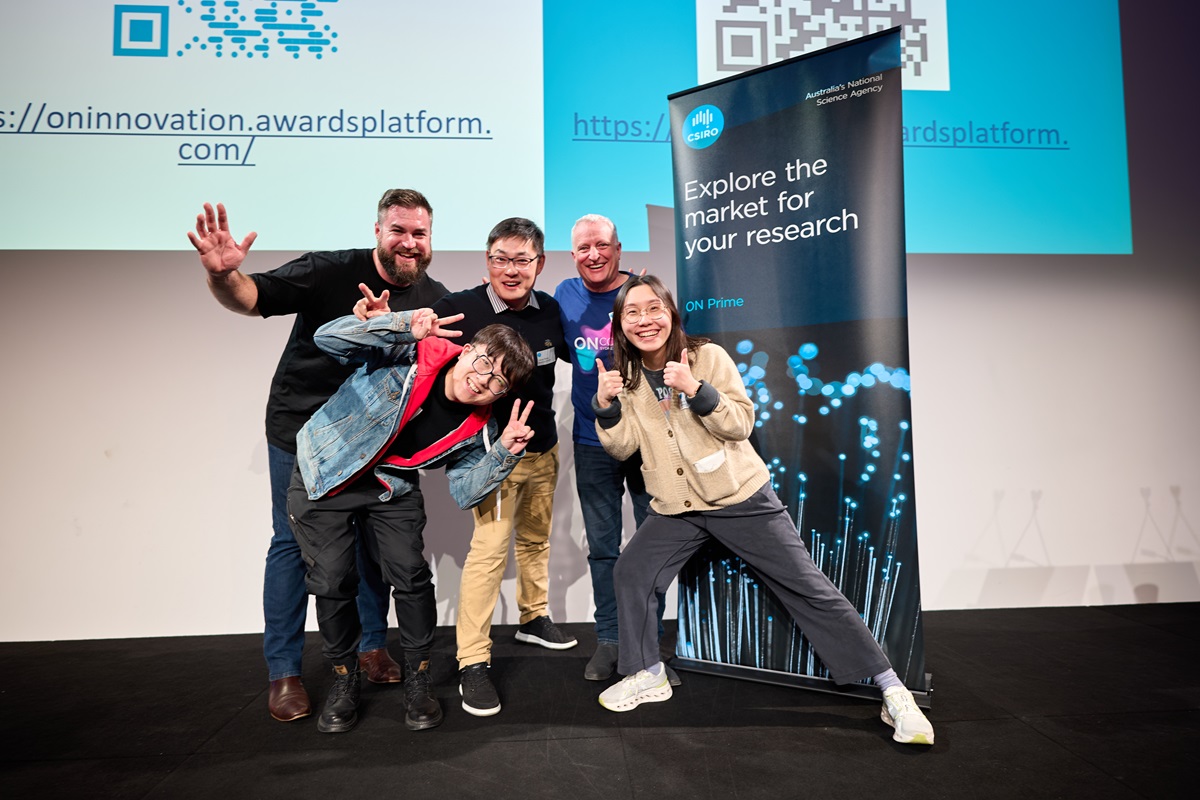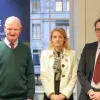
UQ, CSIRO Join Forces to Combat Forever Chemicals
By the time Dr Cheng Zhang and his colleagues at the University of Queensland’s Australian Institute for Bioengineering and Nanotechnology ( AIBN ) joined CSIRO’s ON Prime program, their PFAS (per- and polyfluoroalkyl substances, or ‘forever chemicals’) sorbent was already showing promise inside the lab. What they hadn’t yet figured out was how to make it matter outside.
“We knew we had something with potential, but potential isn’t the same as impact,” said Zhang.
An experienced materials scientist, Zhang brought more than academic knowledge to the table. As an ARC DECRA Fellow (and former NHMRC CJ Martin Fellow), he spent a couple of years at the University of California, Santa Barbara, working on PFAS remediation in collaboration with global chemical giant DuPont’s spin-off company, Chemours.
“That experience opened my eyes to the real-world urgency and complexity of PFAS contamination, especially in the U.S., where regulatory pressure and public scrutiny are intense,” Zhang explained.
“It also helped me understand what industry needs in a solution.”
Today, that same lab-developed polymer has evolved into a bead-like, reusable sorbent material capable of selective capturing PFAS, the persistent ‘forever chemicals’ plaguing landfill leachate, biosolids and wastewater worldwide.
It’s a leap forward in PFAS remediation, where most existing solutions either clog, degrade or fail in complex environments.
What changed? A mindset shift, sparked by completing the ON Prime program.
Dr Zhang’s team, including post-doctoral colleagues Dr Zicheng Su and Dr Xiao Tan , had already made significant technical progress. They had advanced their formulation from a powder prone to clogging to a sleek, bead-like material ideal for continuous flow treatment.
They had scaled up production from milligrams to kilograms, an impressive feat within the confines of a research lab.
“But we hadn’t tested our thinking with real users,” Zhang said. “ON Prime taught us to stop talking at industry and start listening to them.”
Over several weeks in the program, the team refined their value proposition, engaged with stakeholders across the water and waste industries, and began validating use cases. What they learned reshaped their trajectory.
The biggest insight?
“Industry isn’t looking for a paper. They’re looking for a product.”
Key points
- ON Prime gives researchers the skills and confidence to undertake customer discovery and market validation activities that enable them to take their research further.
- Team BlueWave Solutions from the University of Queensland completed ON Prime 15 in 2024.
- The team is now preparing for their first pilot deployment, supported by the Queensland Government’s Advance Queensland initiative.
https://www.csiro.au/en/news/All/Articles/2025/June/ON-Prime-PFAS-case-study


